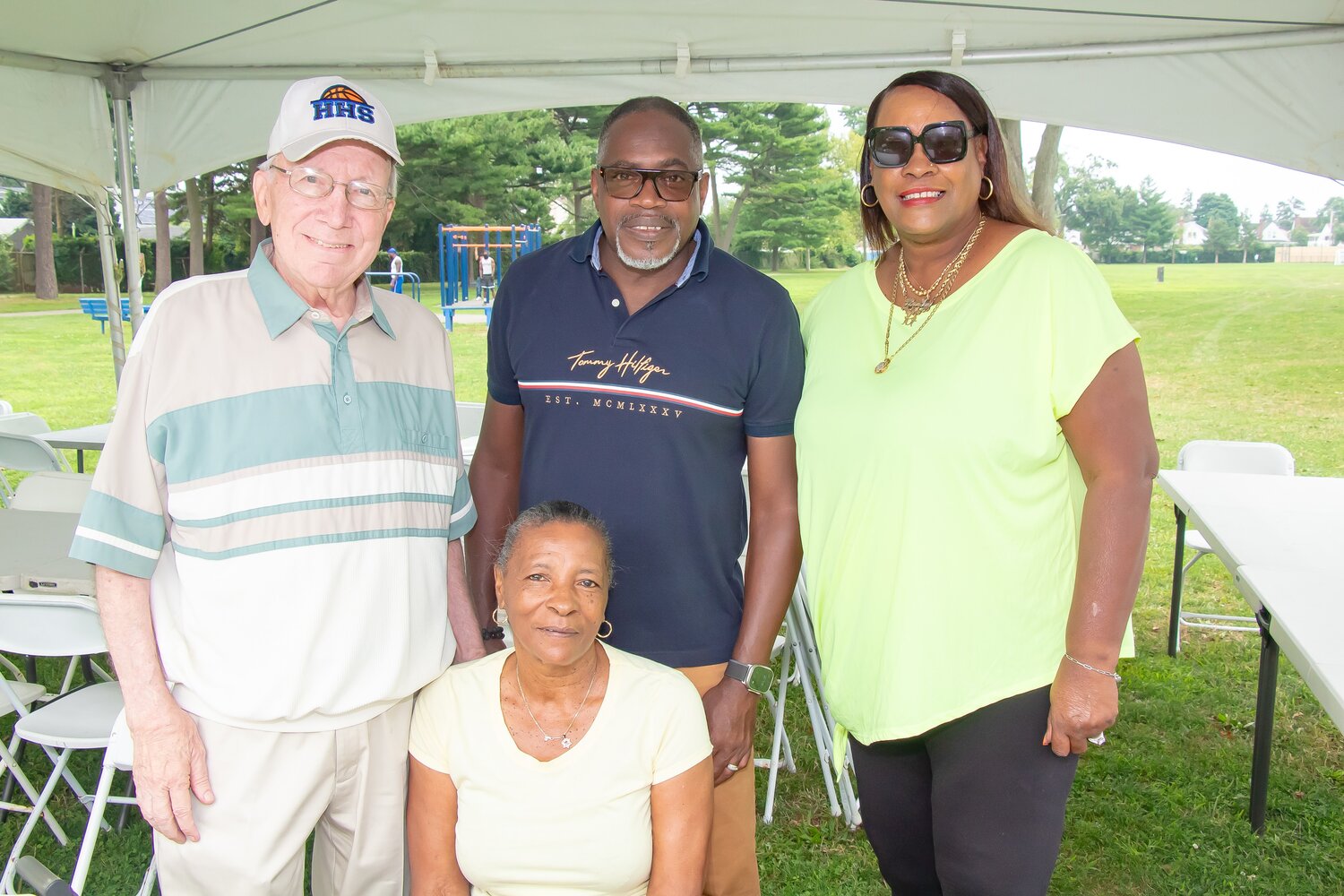Former residents of Wilklow Avenue reunite
A most uncommon reunion occurred on Aug. 17 at Kennedy Memorial Park: that of a low-income project called Park Lake Apartments on Hempstead’s Wilklow Avenue (renamed Martin Luther King Drive in 1971).
Friends who had lived on Wilklow from the 1950s to the mid-1980s, including Mayor Waylyn Hobbs, Jr., exchanged long hugs, laughing and crying. They strolled in chatty groups, pulling on t-shirts made for the occasion and sitting at picnic tables under large white canopies.
Randi “Satch” Harrison acted as DJ, playing a mix of current and nostalgic tunes. Hot dogs and hamburgers sizzled on grills, and a line of eager people formed where Yvonne Homes was deep-frying batches of whiting.
They had all come to celebrate the long-ago community where they had found love, mentoring, and a safe place to grow up.
When the apartments opened in 1949 on Wilklow Avenue, they were part of a slum clearance program.
“It started out like a pit stop, people trying to get on their feet,” said Rosene Myers, the main organizer of the reunion. “But when they actually moved there, and became neighbors, then maybe they meant to stay a year, then it became two years, and some of them never left.”
“We were a family,” said Harrison into his microphone. “We looked out for each other.”
“It was a very strong community of working-class people,” said famed trombonist and composer Craig Harris.
“The neighborhood was stable,” said Esther Ford. “I loved the people.”
Ford and Harris were sitting with former mayor Don Ryan, who had been their business law teacher at Hempstead High School.
“Don would come around to MLK Drive,” said Myers. “He was comfortable talking to us. He never forgot anyone.”
“Don got me my first job, at the IRS. He helped us through a lot of social ills. He always said education is the way,” said Dawn McCrimmon, whose photographer son, Shamel Harris, was snapping pictures of the reunion.
Ryan received a plaque from Harrison for his dedication to the Wilklow Avenue/MLK Drive students.
The Park Lake parents harbored high aspirations for their children, and for all the children in the neighborhood.
“I had it rough,” said Myers, “but the people over there would feed me, donate things to me, chastise me, sit me down to talk about life itself. It was a beautiful family place to be.”
“At that time,” McCrimmon said, “minorities were mostly domestic workers. Mine was the first generation of minorities to go to college. All four of my kids graduated college.”
Harris and Ford both recalled the day in 1964 when Martin Luther King, Jr., spoke at the Hofstra University commencement ceremony, and then visited Wilklow Avenue.
“I was 9,” Harris said. “Just as Martin’s limousine pulled away, I tried to put my hand into the window. Martin told the driver to lower the window, and I shook his hand.”
Life wasn’t always easy in the 240-unit Park Lake complex. By February of 1952, its managers were fined for its run-down conditions. In 1965, the Wilklow Avenue Tenants Council went on a rent strike until the management repaired 79 of the apartments, which took about four years.
But meanwhile, the young people growing up in Park Lake apartments enjoyed a strong network of community support.
“Crime wasn’t like it is now,” said McCrimmon. “We had gangs, but not the violence. It’s true when they say that a village raises a family.”
“People came up from the South to get better lives,” Harris said. “A lot of Hempstead’s best athletes came from there, and famous musicians.”
“In all the courts on Martin Luther King Drive,” said Myers, “we would have snowball fights and softball games. It was just really a beautiful experience.”






